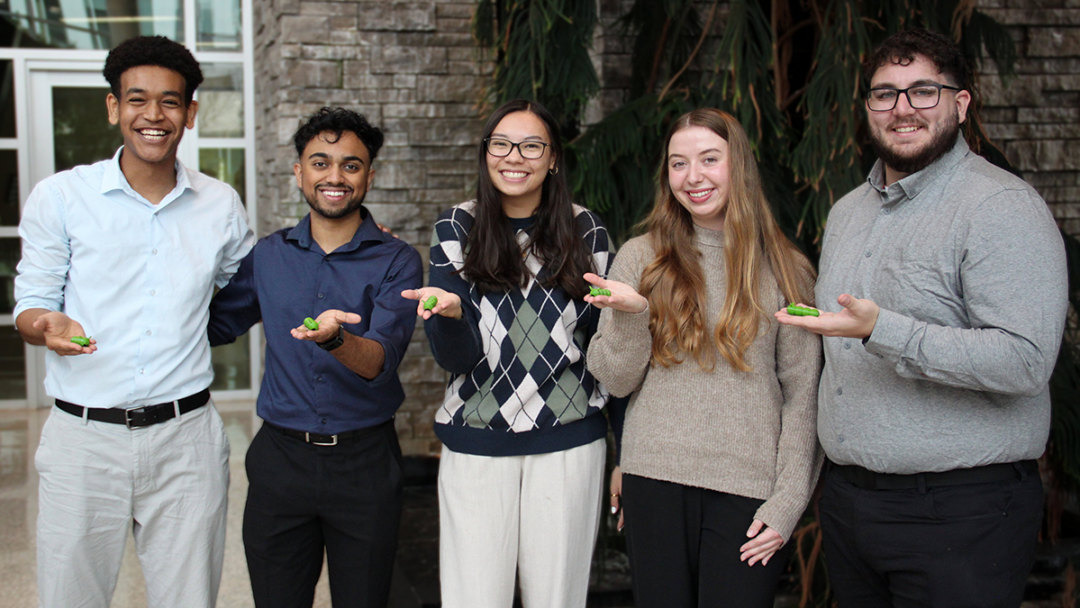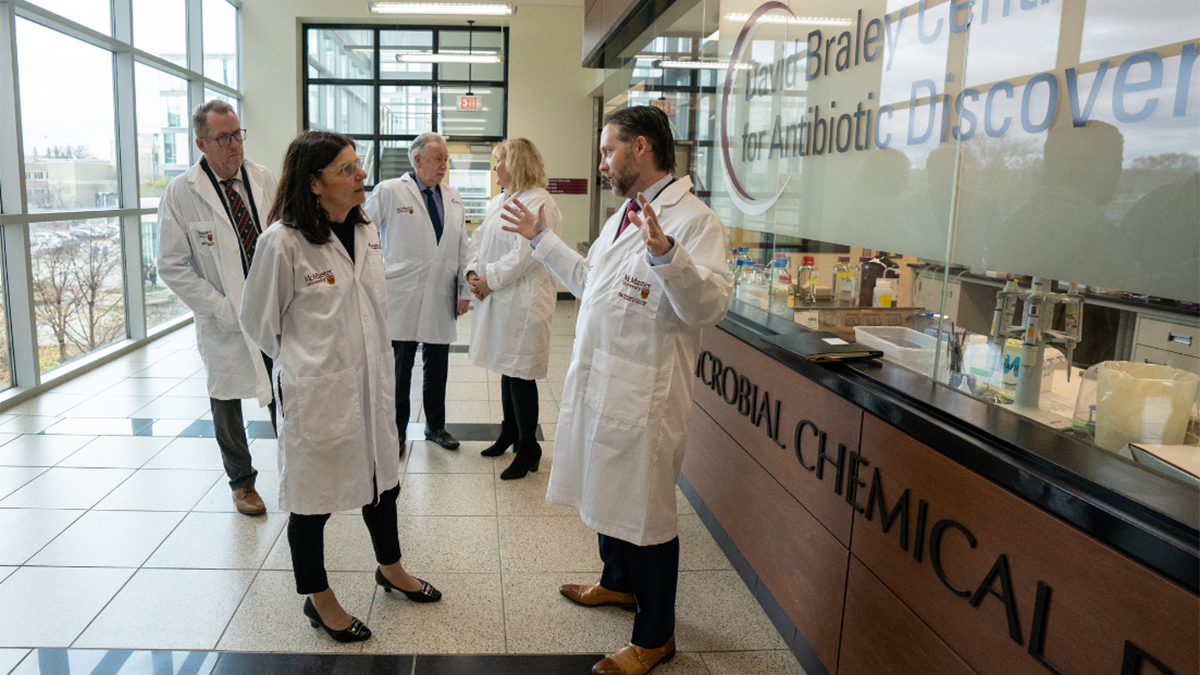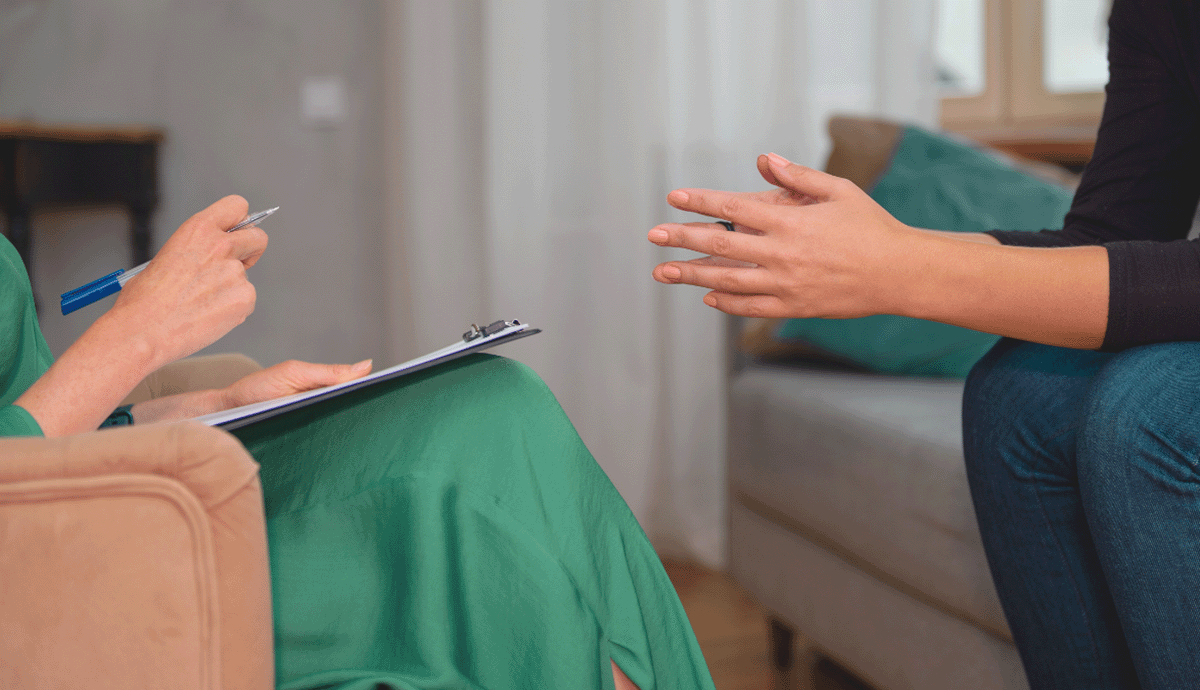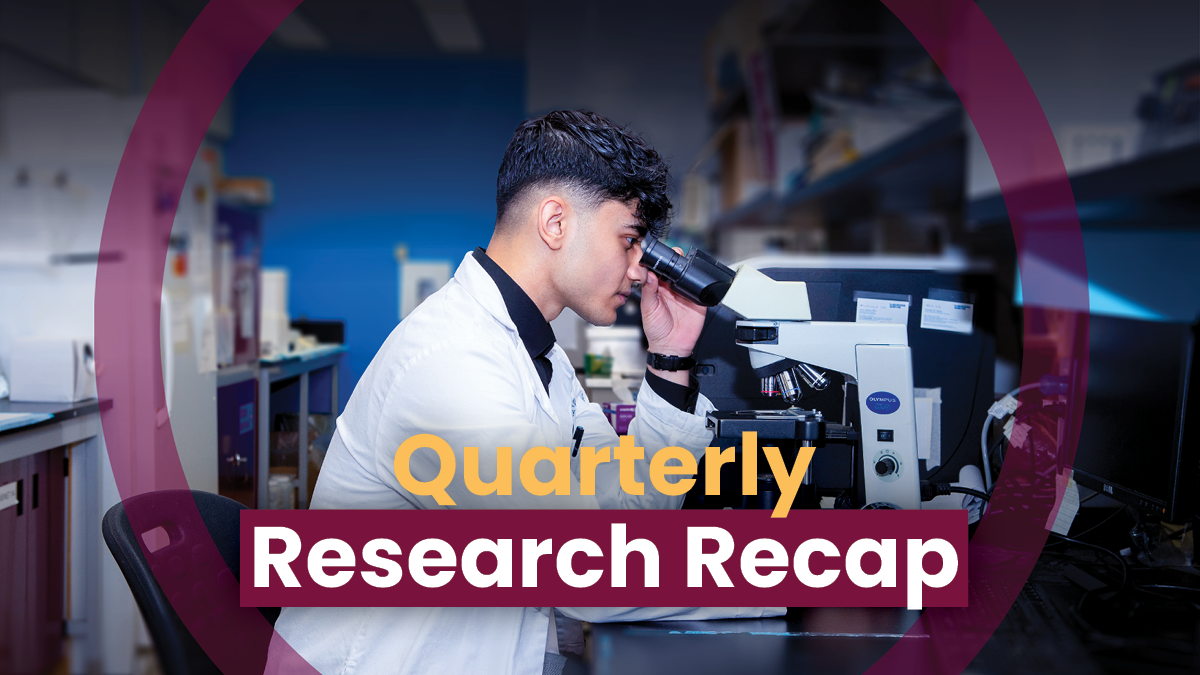From the classroom to the boardroom: McMaster students support university spinout companies in interdisciplinary consulting course

Students at McMaster University are collaborating with local start-up companies — some of which have origins on campus — to help move new health products from lab to market.
The collaboration is facilitated by the university’s Master of Biomedical Discovery and Commercialization (MBDC) Program, which provides MBA-style business training for biomedical sciences students.
Part of that training includes a course called Biomedical Consulting Team Project, which embeds groups of students in consultancy positions at a range of different start-up companies.
The course tasks the students-turned-consultants with developing business plans, conducting market assessments, and identifying and pitching opportunities for new business ventures.
“For students in the program, their scientific training is complete,” explains Andrew McArthur, a professor in the Department of Biochemistry and Biomedical Sciences and instructor of the MBDC consulting course. “These students have already completed a large thesis, and their scientific chops are in good shape. So, here, we really knuckle-down on the business side of things.”
Every year, the program pushes upwards of 40 graduate students out into Ontario’s life sciences sector to gain tangible, on-the-job experience. The idea, program director Sara Andres says, is to ensure that the next generation of scientific entrepreneurs has the business acumen to thrive in Canada’s pharmaceutical, biotechnology, and biomedical industries.
“For many learners, this is their first time working with industry,” explains Andres, an associate professor in the Department of Biochemistry and Biomedical Sciences. “This course provides them with experiences that will help them transition from the mindset of working on a class project in an academic setting to creating deliverables in a professional business environment.”
Andres and McArthur, both members of the Michael G. DeGroote Institute for Infectious Disease Research, say that this year’s course is especially exciting. Not only are many of the participating companies McMaster spinouts, but several of them originated in the university’s Integrated Biomedical Engineering & Health Sciences Program (iBioMed).
“It’s a great example of two premier programs intersecting at the right time,” says McArthur.
The iBioMed spinouts now working with MBDC include Respyra Technologies, Power of Play Innovations, PalmFree, and Cloak the Poke.
Executives at Cloak the Poke, which is transforming the physical appearance of syringes to reduce fear and anxiety in children during vaccinations, say that the partnership with MBDC is as beneficial for the companies as it is for the students.
“This collaboration has already helped us expand our network and initiate projects with fresh perspectives,” says Julia Ungureanu, an iBioMed grad and COO at Cloak the Poke.
Michelle MacDonald, an associate professor in the Department of Biochemistry and Biomedical Sciences and co-director of iBioMed, says that this mutualism is by design.
“MBDC is bridging gaps for budding companies by offering important services at no cost,” she says. “Being able to draw on the expertise of MBDC students is a huge help for these start-ups and might just be the nudge that they need to really take off.”
Following their consultancies, students in the program will take what they’ve learned into formal internships at leading life sciences companies — something current MBDC student Kristine Braun is looking forward to.
Braun, who is consulting for Cloak the Poke along with four of her MBDC peers, says having the opportunity to continue her professional development in yet another business setting will ensure her job skills are sharp as she enters the workforce.
“Skill-building through practical experiences in the MBDC program is setting us up for success in future,” she says. “This course, in particular, has provided an invaluable opportunity to gain real-world experience.”
Collaborations & Partnerships, Education, ResearchRelated News
News Listing

Government of Canada invests $4M in McMaster to fast-track regional drug discovery initiatives
Feature, Global Nexus, Michael G. DeGroote Institute for Infectious Disease Research, Research
5 days ago

McMaster researchers find talk therapy, rehabilitation likely improve long COVID symptoms
Dept. Anesthesia, Research
5 days ago

6 days ago
